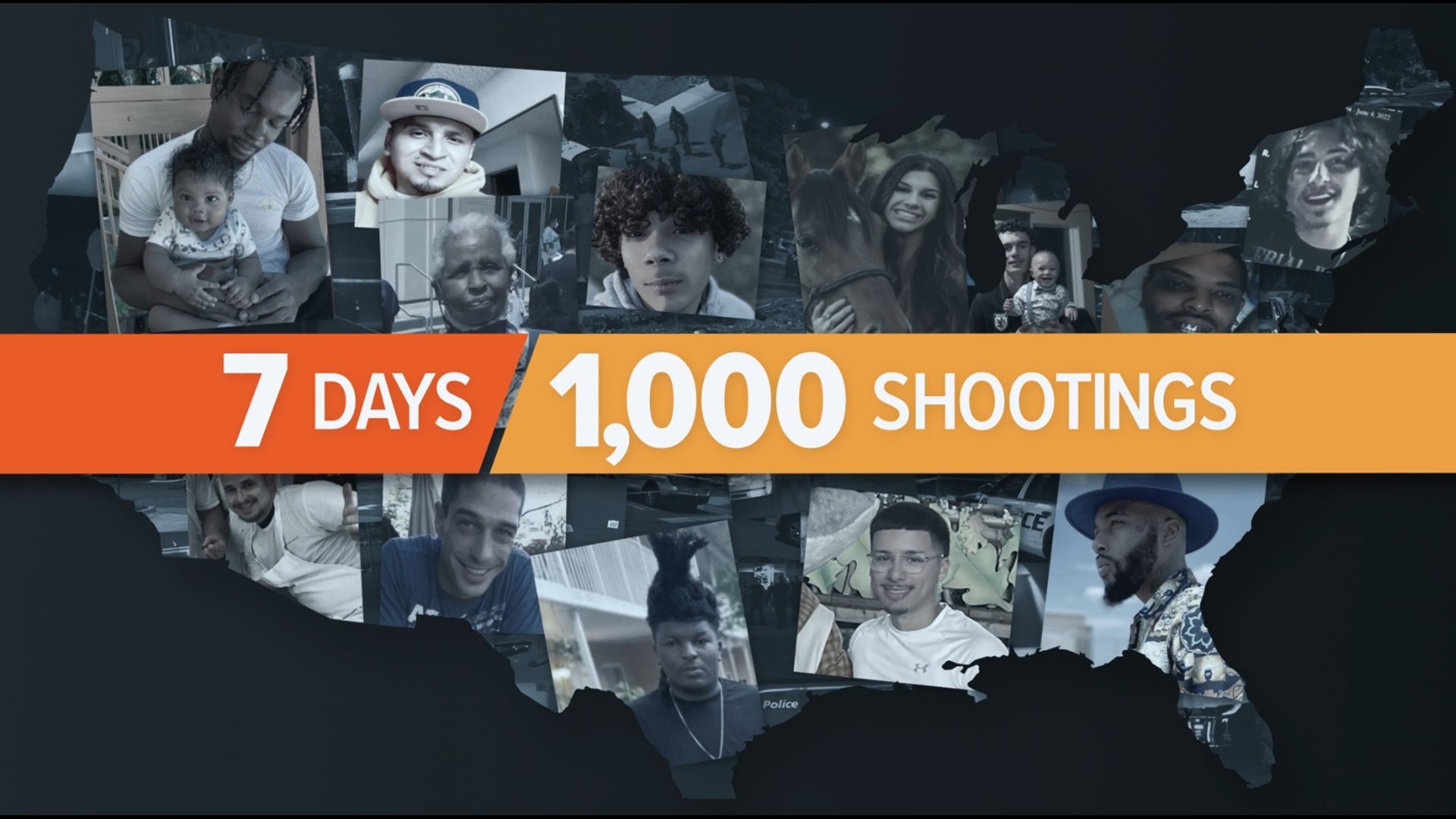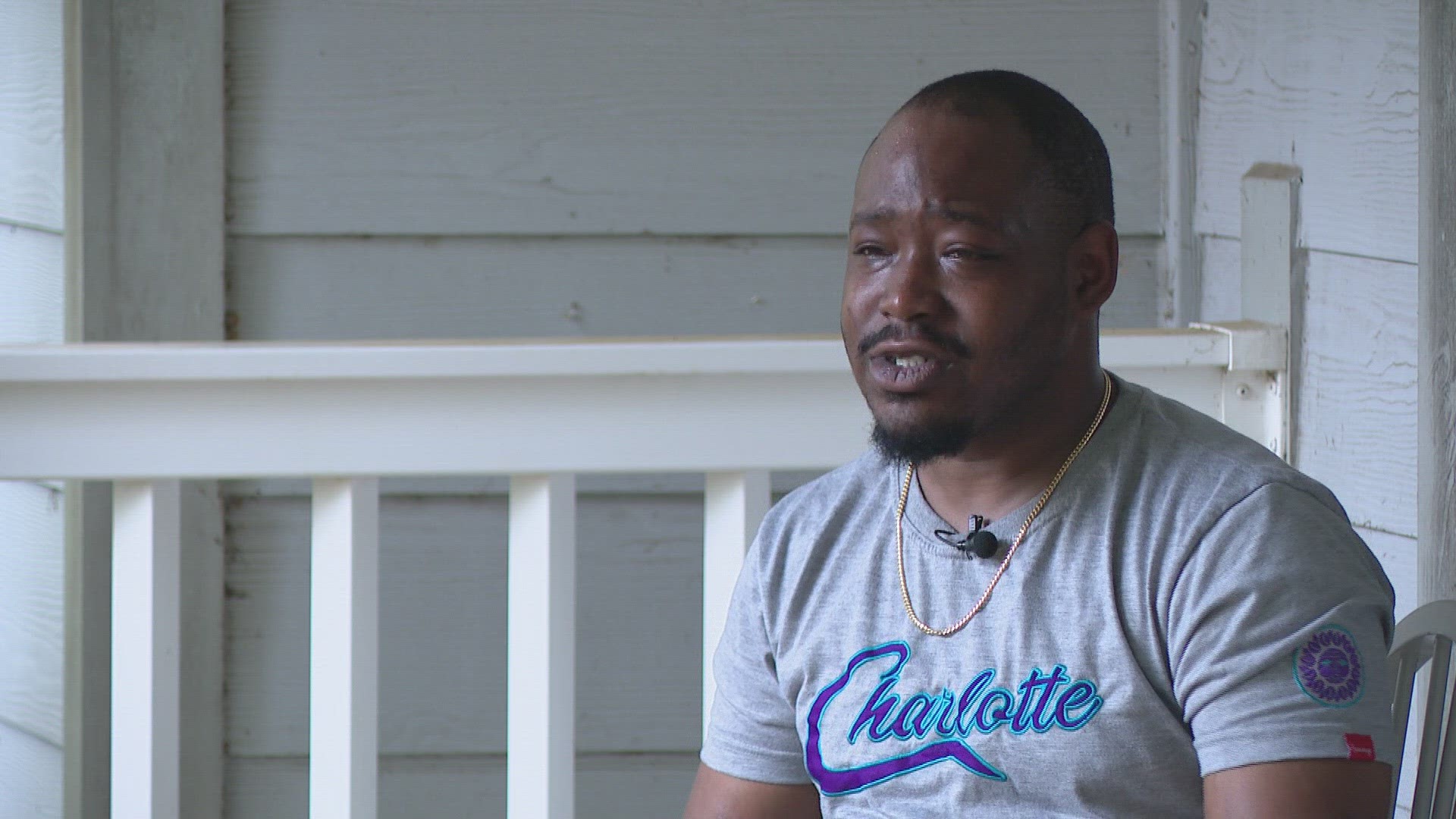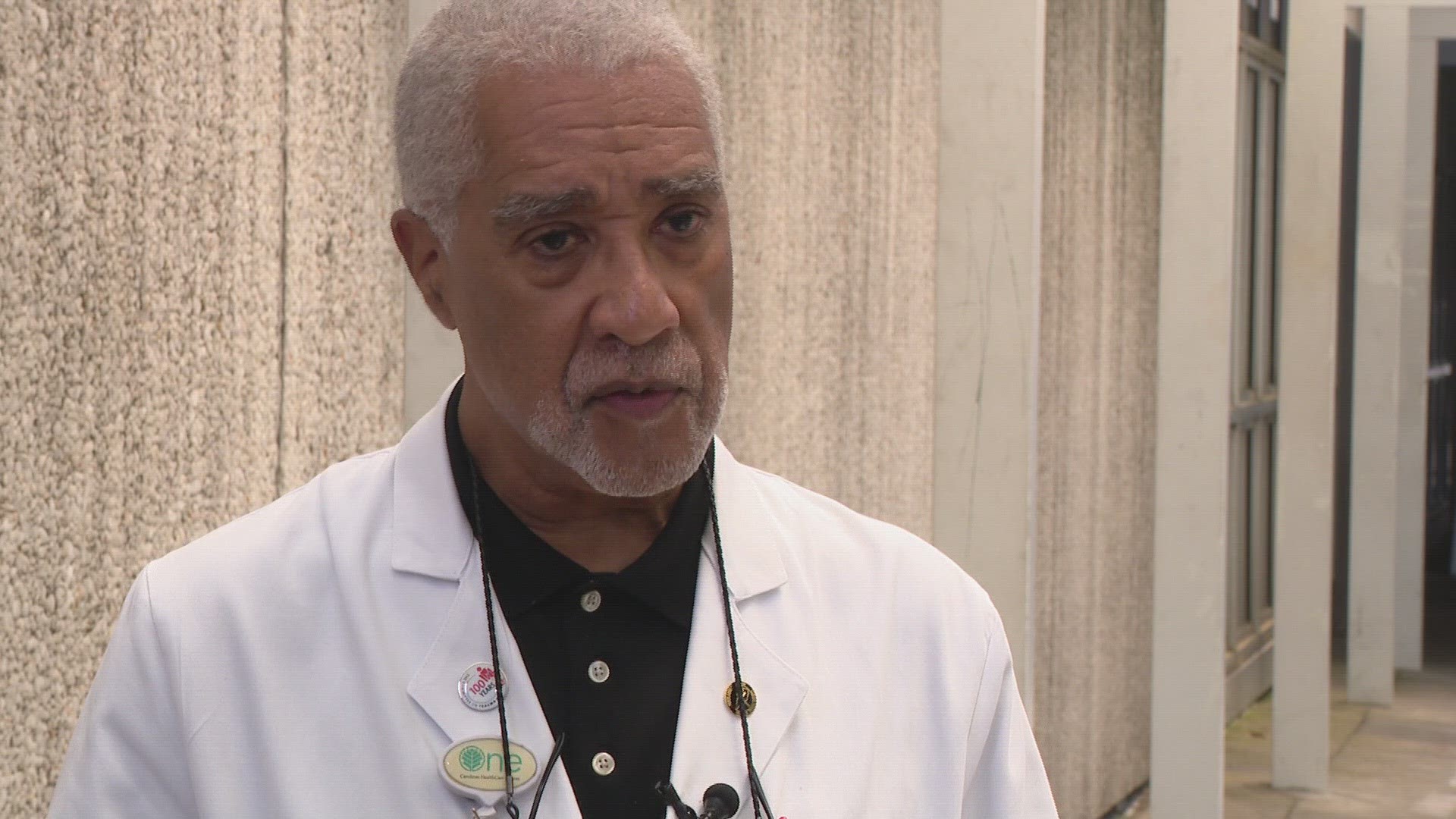7 days, 1,000 shootings: From heartache to healing to hope
Ahead of National Gun Violence Awareness Day, TEGNA stations across the country, including WCNC Charlotte, spent months investigating a single week of shootings.
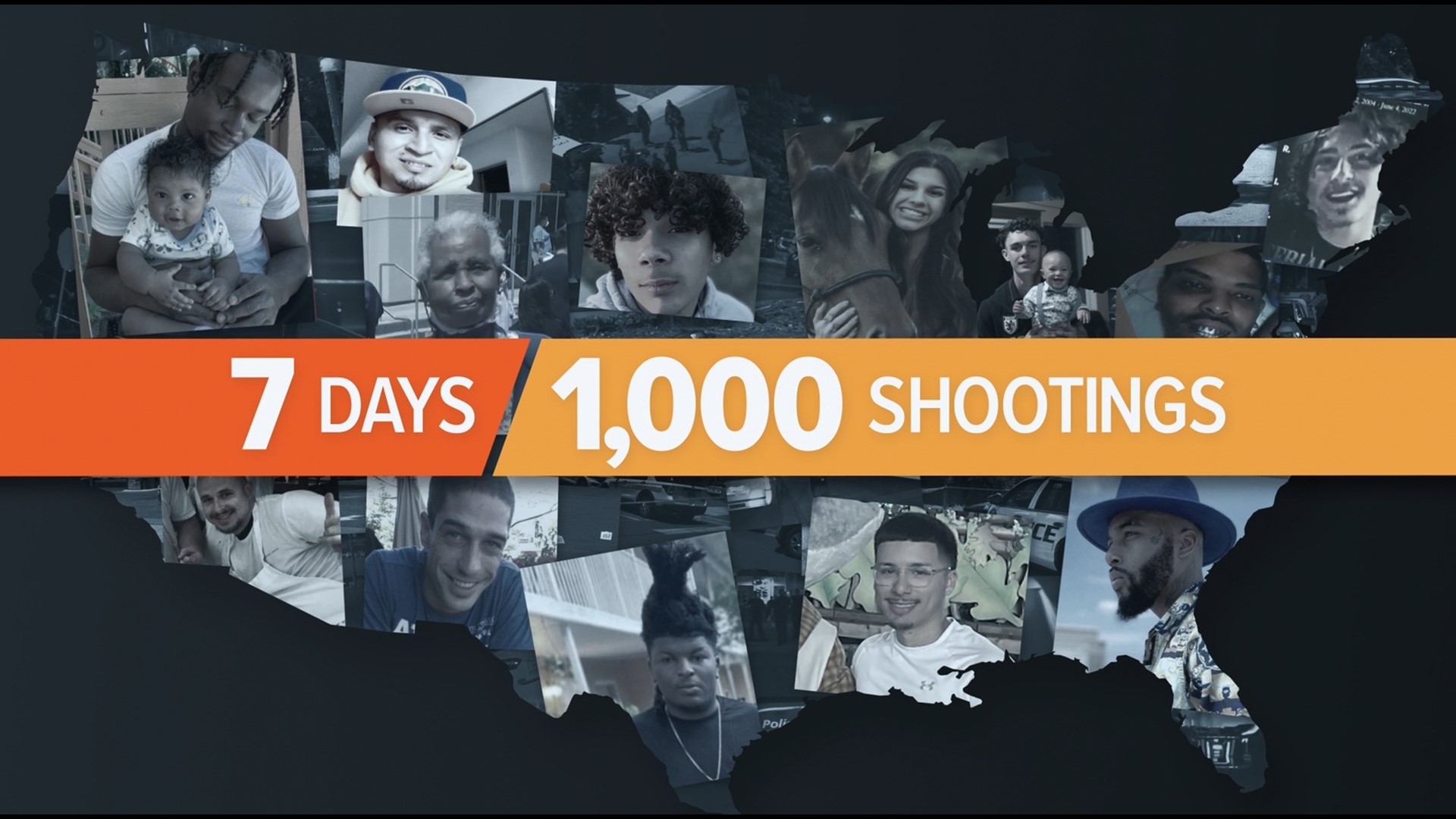
Moments before dawn on June 3, 2022, the day started with mourning.
Before a son could even rise, his father took a final breath.
June E.
Witnesses initially thought they heard fireworks or a cap gun around 5:45 a.m. in the north Charlotte apartment complex on Philadelphia Court.
They later learned someone killed 26-year-old rapper Herbert "June" Eaton of Mint Hill, North Carolina.
"They said someone just got killed there," neighbor Joseph White recalled. "Of course, I was concerned. I have family that stay in that same building. Definitely too close to home."
A witness told investigators they heard two men arguing, "heard a scuffle, heard gunshots, and then heard someone running down the stairs of the apartment building."
The woman who called 911 said Eaton was banging on her door, telling her someone shot him, adding he was "bleeding and losing consciousness." His autopsy concluded he suffered two gunshot wounds, with the fatal shot striking his pelvis and another piercing his abdomen.

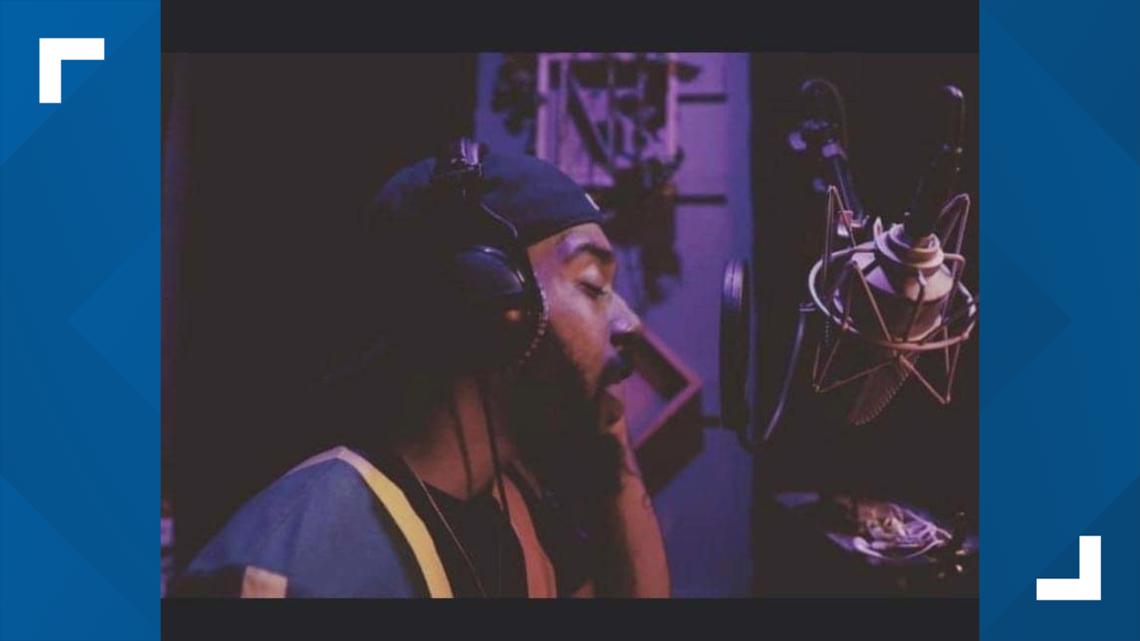
"This my start," an optimistic, then 24-year-old, Eaton said in a 2021 documentary about his upcoming album titled "Omen." "Like, for real. I've been rapping since I was 13 ...This is, like, really it."
His sister echoed similar hopes for her brother's success.
"June can actually make it because he's so versatile," Eaton's sister said in the documentary.
The young father, whose rap lyrics often referenced guns and death, never got that chance.
1 week, 25 shooting victims
By the end of the first week of June 2022, at least 24 other people in the Charlotte area suffered gunshot wounds too, most of them fatal, a WCNC Charlotte investigation concluded.
Police reports identify the overwhelming majority of victims as Black and Hispanic men in their mid-20s, on average. Reports reveal police made arrests in most cases.
In one case out of Gastonia, a bail bondsman shot and killed a man. The district attorney ruled the shooting a "justifiable homicide" and declined to file criminal charges.
The youngest to die was just 4 months old. The Monroe double murder also claimed the life of the boy's father. Overall, five of the shootings involved multiple victims.
Those shot between May 29 and June 4 in 2022 were among more than 1,000 shooting victims in the United States that same week, according to the Gun Violence Archive.
Ahead of National Gun Violence Awareness Day on June 2, TEGNA stations across the country, including WCNC Charlotte, spent months investigating a single week of shootings to quantify the problem and uncover possible solutions.
The investigation found the week in question didn't just mark the start of summer, it was the first time in 2022 the nation exceeded 1,000 shootings over seven days; looking back, one of the worst weeks of the year for gun violence.
Over those seven days, at least 450 victims died and 900 others suffered injuries.
SEEKING SOLUTIONS: Tracking 1,000 shootings in one week of June 2022

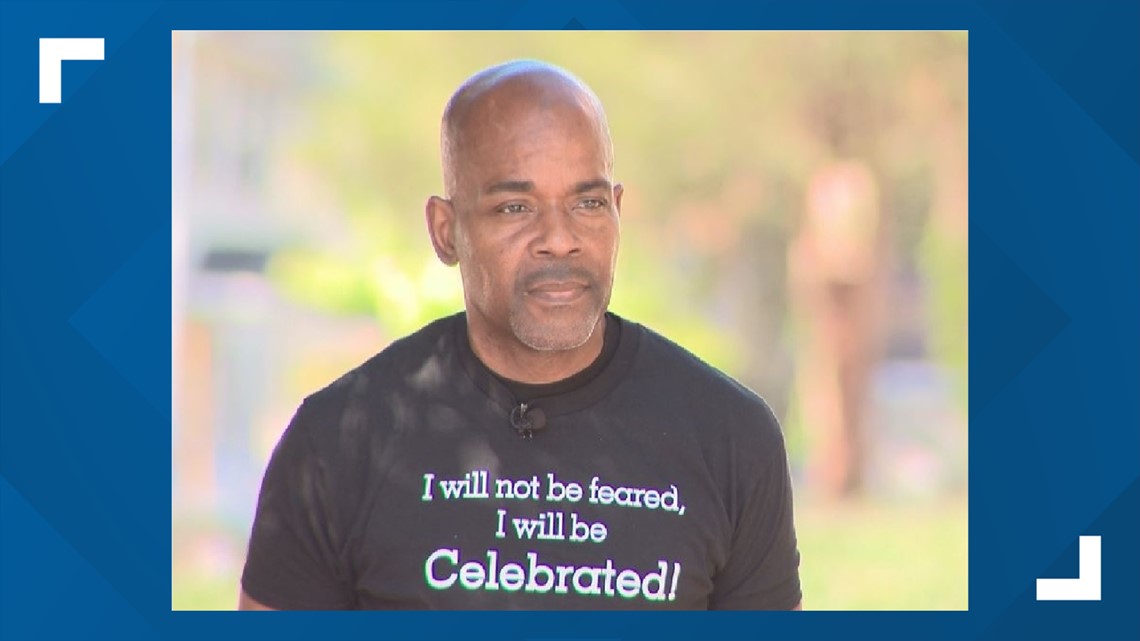
"It bothers me because it's so normal. Because that's somebody's child ... Our Black men are dying on the street. The Black community of Charlotte is dying."
-Mark Raley with Mothers of Murdered Offspring and Young Men United
All too often, Raley organizes candlelight vigils for hurting families.
He knows their pain. Someone killed Raley's cousin during a Juneteenth party in 2020. That murder remains unsolved.
"It's like, 'Wake me up out of this dream. Is this really happening?' The mothers crying and the young kids crying," Raley said. "It hurts. I love to see people heal, and I hate to see people hurt."
Guns The problem-solver of choice

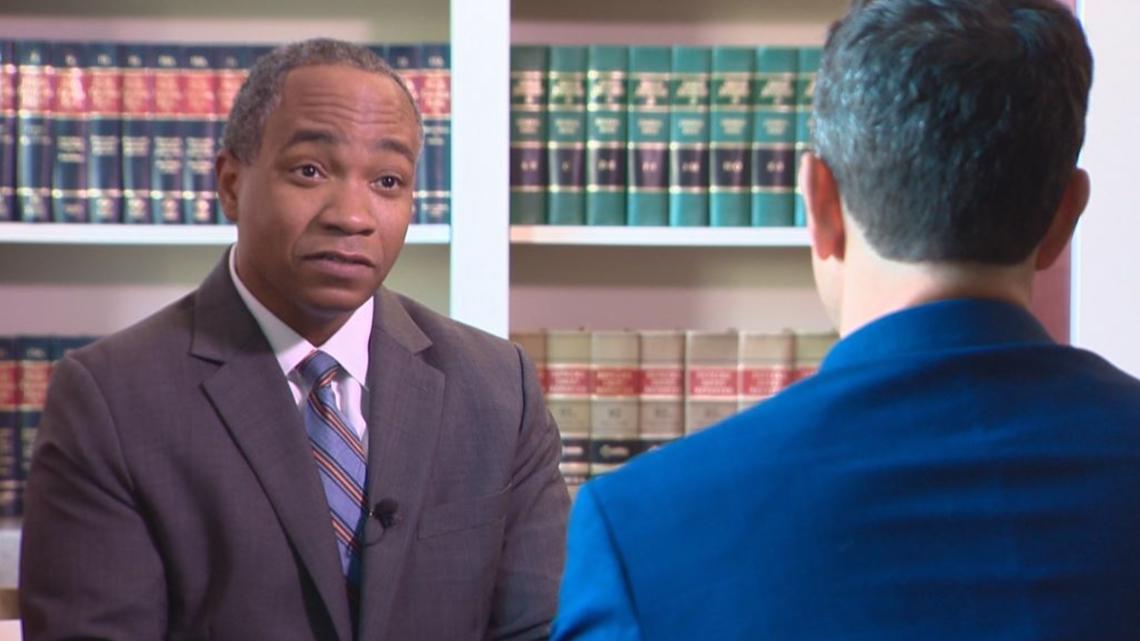
Mecklenburg County District Attorney Spencer Merriweather told WCNC Charlotte guns, not reasoning, have become the problem-solver of choice for desperate young people who largely live in neighborhoods overcome with poverty.
"The most blighted communities that exist within our jurisdiction are usually the ones that are going to feel violence the most," Merriweather said.
The DA said not only are the suspects generally people of color, but so too are the victims. Dating back to 2015, police identified 65% of homicide victims as Black men, Charlotte-Mecklenburg Police Department data show.
"We hardly ever talk about the people in this community that are exposed to victimhood when it comes to violence," Merriweather said. "That's a disparity that nobody talks about."
A prior WCNC Charlotte analysis of CMPD data concluded 75% of suspects tied to homicides from 2015 to 2019 were Black men. That same data, meanwhile, revealed Myers Park, Barclay Downs, and the surrounding areas didn't have a single murder during that time period.
Merriweather said one of the scariest things he's heard is kids as young as 13 saying they believe they need a gun to protect themselves and their families.
"We're just seeing people lose it over the most simplest arguments," Merriweather said. "Everyone in our community has to take a level of ownership in this. People are so quick to pick up a gun right now to solve their problems and that can't be where we are."
Hope
Walk a minute in Chris Coletrane's shoes, though, and you might find a path forward.
"I'm glad to be alive," Coletrane said. "I could be paralyzed, and I'm not."
The 27-year-old nearly died after a "disagreement," but he now has a totally different perspective on life.
"I stay in my own lane. I mind my own business," Coletrane said. "I don't go looking for trouble. Trouble will find you."
The 911 call from the March 2021 day in question is chilling.
"They just shot him dead," a woman screamed. "Oh my God."
A man opened fire on an unarmed Coletrane as he walked his 3-year-old daughter back from a Charlotte park. He suffered roughly a dozen gunshot wounds in all.
"I crawled onto someone's porch curled up in a baby fetal position. Everything started flashing through my head like a scrapbook. I'm trying to cover up bullet holes. It's hard to breathe. I can't get up. I've got my daughter right [next to me]. She's crying," Coletrane recalled. "It's very horrific, man. Sometimes when I'm asleep, bro, I have these bad dreams that I wake up out of and have my heart racing real fast."

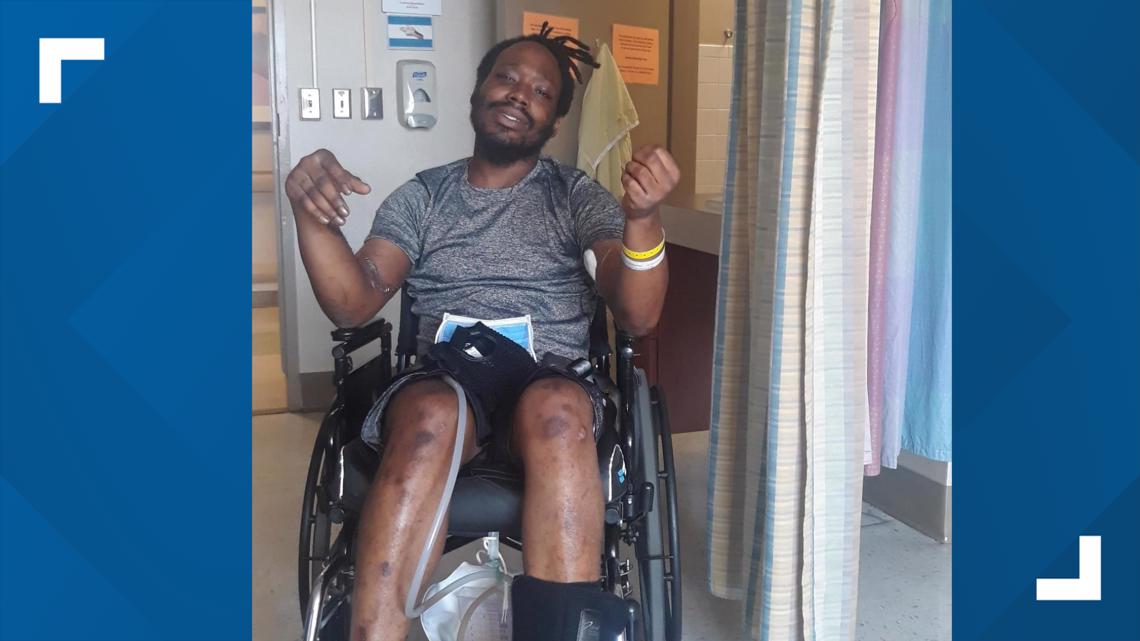
The shooting followed the murder of his best friend.
"Being down on that ground man, I felt helpless," Coletrane said. "I felt hopeless."
Coletrane had spent the prior year-and-a-half homeless after his mother kicked him out of the house.
"She said I was getting into trouble too much," Coletrane said.
During his lengthy hospital stay, which included moments when he felt like giving up, a social worker connected Coletrane with $1,000 a month worth of housing help through Freedom Fighting Missionaries.

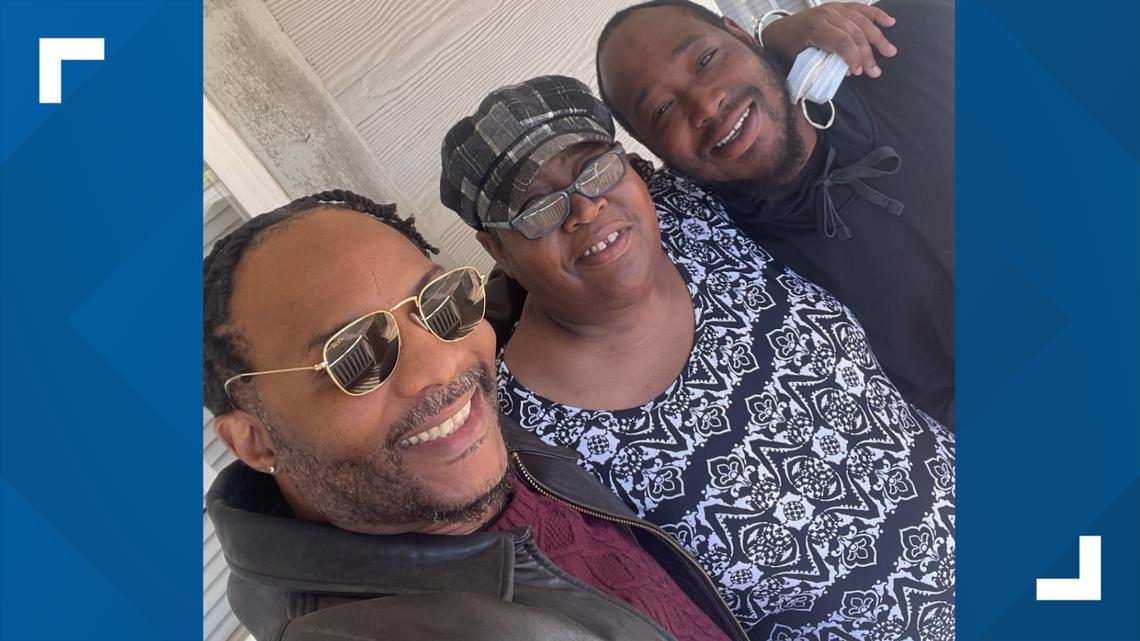
He now has stability, a way to shed some of his past and improve his chances of survival.
"I didn't want to go back to the same environment. I didn't want to go back to the same situation," Coletrane said.
Violence intervention at the hospital
Dr. David Jacobs has young African-American sons of his own. He heads Atrium Health's emerging Violence Intervention Program, which offers survivors immediate help from within the hospital.
"I take it very personally," the medical director said. "Every time I get up in the middle of the night and get called to see yet another patient, I just keep saying to myself, 'We're not doing enough.'"
With $500,000 worth of funding from the city of Charlotte, two violence intervention specialists evaluate willing gunshot victims for critical social needs and then write a prescription to get them on the road to recovery.
"We think of it as a public health problem, because we know the causes, we know that it travels like an infectious disease from community to community, from individual to individual, from generation to generation and we know what works. We know some of the things that prevent it, so it makes all the sense to treat it like a disease," Jacobs said. "When a patient comes in here with a gunshot wound and we take a bullet out of their arm, we're not really treating the disease. Are they homeless? Do they need a tattoo removed? Do they need to get out of a gang? Do they need a job? What do they need in order to get their lives on a positive track? We have a young man that we helped get back in college."
While it's too early to draw conclusions about the long-term impact of the program, a year in Atrium reports it has enrolled 87 patients between the ages of 14 and 27.
The program will monitor those patients for at least six months. So far, Atrium has sent 57 community referrals for everything from mental health services to employment readiness programs and relied on 28 different community organizations to provide assistance to recovering victims.
The health system modeled the program after similar successful violence intervention initiatives in other parts of the country.
However, Jacobs said, in order to meet the need in Charlotte, the program could benefit from hiring four to six more specialists to offer 24/7 coverage.
Jacobs said expanding the program over several years could cost $5 to $10 million, but he believes the investment is worth it. A single gunshot victim alone is estimated to cost the community up to $45,000.
"We're seeing younger and younger and younger patients that we're putting into this program," Jacobs said. "I think we need to saturate the community with these kind of programs. I don't want the public to think this is automatically going to bring the violence rate in Charlotte down to zero. The proof will come with time ... but I'm optimistic."
He knows long-term support and the success that follows are contagious for every person a survivor touches. He calls it a teachable moment when they're most vulnerable.
"This time you made it to the hospital, but maybe next time you won't be so lucky. We feel like this is an opportunity to engage those patients at a moment of their vulnerability and their introspection," Jacobs said. "Maybe patients are more open to talking about these kind of things because now they've been confronted with their own mortality."
While the program wasn't yet in existence when Coletrane was shot, he's since offered to help and even met Jacobs in recent weeks.

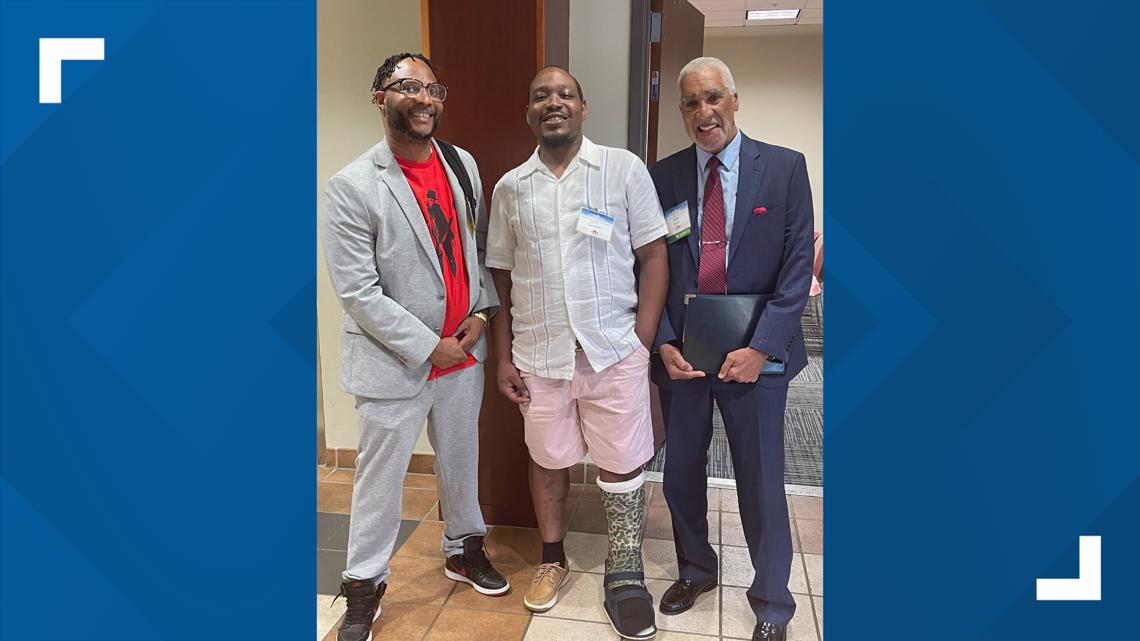
"It's just not worth it. Life is too short, man. You don't want to end up like me," Coletrane said of his message. "I'll never be the same. Can't run. Can't jump. Can't run around and chase my daughter. It's taking a toll on me. It's taking a toll on your mind and your body physically. I'm able to shake that off and realize that she's here and I'm here."
Violence interrupters
There is room for more optimism.
A study released by the Urban Institute at UNC Charlotte found another city program, still in its early stages, has helped reduce murders involving guns.
Alternatives to Violence disrupts violence in real-time using workers with strong community connections along the Beatties Ford Road Corridor to act as violence interrupters or mediators.
They spend time in the area, building relationships with young people ages 14 to 25, who are considered at higher risk of being involved with violent crimes. According to the Urban Institute report, the program helped avoid 40 instances of violence over the course of the 1,500 hours workers spent canvassing the community.
While crime along the Beatties Ford Road corridor was similar to other parts of the city, the study concluded homicides involving a gun were down compared to the year before the program began.
One year later

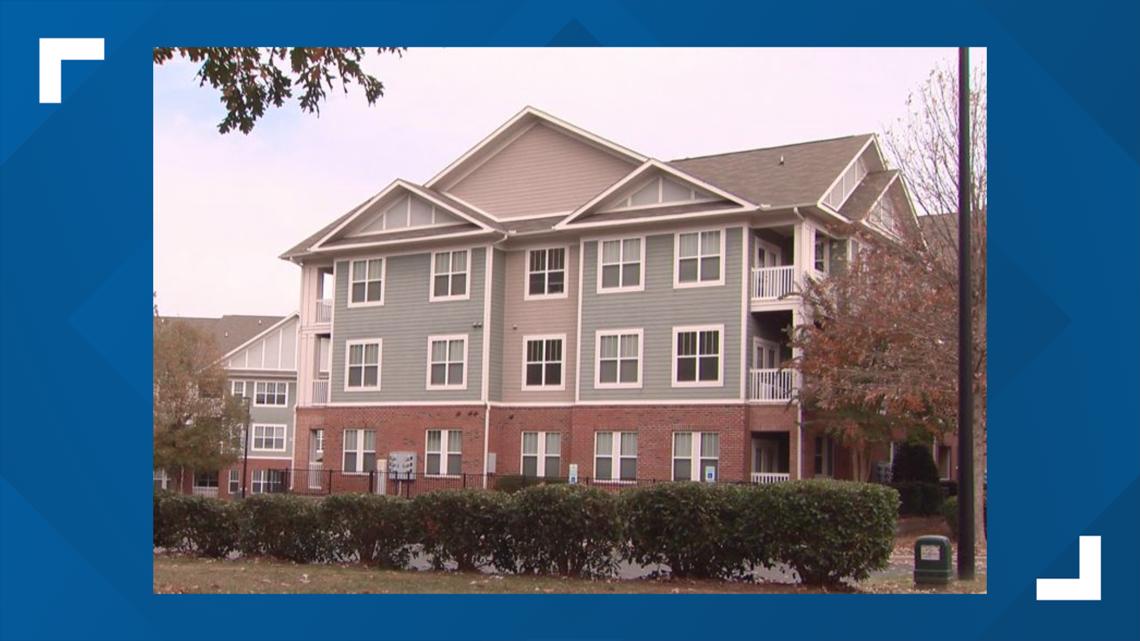
As night falls almost one year to the day after June Eaton's killing, his accused killer remains in jail. Eaton's girlfriend told CMPD detectives she recently broke up with an "abusive" ex-boyfriend who was "extremely jealous" and "had been stalking her," a search warrant revealed.
CMPD eventually arrested then-29-year-old Drakwan Lamard Butler of Albemarle and charged him with first-degree murder. The shooting occurred just days before his 30th birthday.
Court records reveal a witness said they had seen Butler in the apartment complex parking lot following the breakup. Police later found a magazine for a pistol inside his car, a search warrant shows. Investigators also discovered a tractor-trailer near the crime scene with two cell phones inside. A trucking company confirmed Butler was the driver, according to court records.
A judge denied his bond. In the months after his arrest, Butler's original court-appointed attorney declined to comment and his subsequent attorney did not respond to WCNC Charlotte's inquiry.
Butler's criminal history at the time of his arrest included pending charges for carrying a concealed weapon and communicating threats, according to public records.
Eaton also had past gun charges. Leading up to his murder, court records show a judge sentenced Eaton to time served following two gun-related convictions for assault with deadly weapons that originated in 2021, court documents reveal.
Butler's case file shows in the aftermath of the murder, the North Carolina Crime Victims Compensation Commission awarded Eaton's family nearly $5,000 to cover his funeral.
The darkest indictment before the dawn
Prior to 2020, a murder case in Mecklenburg County would take up to three-and-a-half years to go to trial. The increase in violence, coupled with the pandemic, has now delayed those cases by at least five years, likely six.
"Six years for someone to get justice, to get accountability is a terrible thing," the district attorney said. "That's what we're looking at here."
Contact Nate Morabito at nmorabito@wcnc.com and follow him on Facebook, Twitter and Instagram.
WCNC Charlotte is committed to reporting on the issues facing the communities we serve. We tell the stories of people working to solve persistent social problems. We examine how problems can be solved or addressed to improve the quality of life and make a positive difference. WCNC Charlotte is seeking solutions for you. Send your tips or questions to newstips@wcnc.com.


